
How to Prepare for Your Surgery with Consultant Plastic Surgeon Anca Breahna
As you start your plastic surgery journey, it is important to follow the pre-surgery guidelines. By adhering to these instructions, you can ensure a good outcome, minimise the risk of complications, and set yourself up for a smooth recovery.
Your safety and well-being are our top priorities. By working together and maintaining open communication, we can create a positive surgical experience that helps you achieve your desired results. Remember, Consultant Plastic Surgeon Anca Breahna and our team are always available to answer any questions or address any concerns you may have.
As you read through this guide, please take note of any specific instructions related to your individual procedure. While the general guidelines apply to most surgeries, certain procedures may require additional preparation or have unique considerations.
Surgery Preparation Timeline
Preparing for surgery is a gradual process that begins several weeks before your scheduled procedure. By following this timeline, you can ensure that your body is in optimal condition for surgery and that you have taken care of all necessary arrangements.
➔ 4 Weeks before Surgery
- Stop smoking and using nicotine products: Nicotine can impair healing and increase the risk of complications. It is essential to quit smoking and avoid all nicotine products, including cigarettes, e-cigarettes, patches, and gum, at least 4 weeks before your surgery. If you need assistance quitting, please let us know, and we can provide resources to help you.
- Reduce (ideally avoid) alcohol: Alcohol intake increases inflammation, disturbs sleep architecture hence delays healing.
- Avoid sun exposure and tanning beds: Excessive sun exposure and the use of tanning beds can damage your skin and increase the risk of complications. In the weeks leading up to your surgery, protect your skin by wearing broad-spectrum sunscreen with an SPF of at least 30, and avoid prolonged sun exposure and tanning beds altogether.
- Begin taking multivitamins and eating a balanced diet: A healthy body is better equipped to handle the stress of surgery and heal properly. Start taking a daily multivitamin to ensure that you are getting all the necessary nutrients. Focus on eating a balanced diet rich in fruits, vegetables, lean proteins, and whole grains. Adequate nutrition will support your body’s healing process.
➔ 2 Weeks before Surgery
- Stop taking aspirin, ibuprofen, and certain supplements: Certain medications and supplements can increase the risk of bleeding and other complications during and after surgery. Two weeks before your procedure, stop taking aspirin, ibuprofen, and any other blood-thinning medications, unless otherwise directed by your surgeon. Additionally, avoid herbal supplements, as some can interfere with anaesthesia or increase bleeding risk. If you are unsure about any medications or supplements you are taking, please consult with your surgeon.
- Arrange for transportation and post-surgery care: It is important to have a support system in place for your surgery and recovery. Arrange for a responsible adult to drive you home after your procedure and stay with you for at least the first 24 hours. If you have young children or pets, make arrangements for their care during your initial recovery period.
- Fill prescriptions and prepare your recovery area at home: Your surgeon will prescribe medications to manage pain and prevent infection. Fill these prescriptions before your surgery date, so you have them readily available when you return home. Prepare a comfortable recovery area in your home, with plenty of pillows, blankets, and easy access to essential items like water, snacks, and entertainment. Having everything set up in advance will allow you to focus solely on your recovery.
➔ 1 Day before Surgery
- Follow your surgeon’s fasting instructions: Anca will provide specific instructions regarding when to stop eating and drinking before your surgery. Make sure to follow these guidelines carefully to reduce the risk of complications related to anaesthesia. Typically, you will be asked to fast for 8-12 hours before your scheduled procedure. This includes avoiding all food, drinks, and even water. If you have any questions about your fasting instructions, please contact our office for clarification.
- Take prescribed medications as directed: If your surgeon has prescribed any medications to be taken the day before surgery, such as antibiotics or pre-operative cleansing solutions, make sure to follow the instructions carefully. These medications help reduce the risk of infection and ensure that your body is prepared for surgery.
- Pack a bag with comfortable clothing and essential items: Prepare a bag to bring with you on the day of surgery. Pack loose, comfortable clothing to wear home after your procedure, as well as any personal items you may need, such as a toothbrush, hairbrush, and lip balm. If you are staying overnight at the hospital, pack a change of clothes and any necessary toiletries. Don’t forget to bring your ID, insurance card, and any paperwork provided by your surgeon.
Specific Recommendations for Different Plastic Surgery Procedures
While the general surgery preparation guidelines apply to most procedures, certain surgeries may require additional considerations. Here are some specific recommendations for common plastic surgery procedures:
➔ Breast Surgery
- Purchase a supportive, wireless surgical bra: Prior to your breast surgery, purchase a supportive, wireless surgical bra as recommended by your surgeon. This bra will help minimise swelling, provide support, and promote healing during your recovery. Make sure to have at least two bras on hand, so you can alternate between them while laundering.
- Arrange for help with daily activities and childcare: After your breast surgery, you will have limited mobility and may find it difficult to perform daily tasks, such as lifting, reaching, or caring for young children. Arrange for assistance from family or friends to help you with these activities during your initial recovery period.
- Prepare ice packs to manage swelling: Swelling is a common side effect of breast surgery. To help manage this swelling and alleviate discomfort, prepare several ice packs or bags of frozen peas before your surgery. These can be applied to the surgical area as directed to reduce swelling and provide relief.
➔ Tummy Tuck Surgery
- Purchase a compression garment: A compression garment is an essential part of the recovery process after a tummy tuck. This garment helps to minimise swelling, support your abdominal muscles, and promote healing. Anca will advise you on the type of garment to purchase and how long to wear it. Make sure to have at least two garments to allow for laundering.
- Prepare meals and snacks in advance: After your tummy tuck, you may find it challenging to stand for extended periods or prepare meals. In the days leading up to your surgery, prepare and freeze several healthy meals and snacks that can be easily reheated. Having a well-stocked fridge and pantry will ensure that you have access to nutritious food during your recovery without the need for excessive meal preparation.
- Set up a comfortable resting area with plenty of pillows: Following your tummy tuck, you will need to rest in a slightly elevated position to help reduce swelling and promote healing. Set up a comfortable resting area in your home, with plenty of pillows to support your back and legs. Consider investing in a recliner or adjustable bed to make it easier to find a comfortable position.
➔ Mummy Makeover Surgery
- Arrange for extended help with childcare and household tasks: A mummy makeover is a combination of surgical procedures, typically including a breast uplift or enlargement, tummy tuck, and liposuction. As such, your recovery will require more extensive assistance and downtime. Arrange for extended help with childcare and household tasks, such as laundry, cleaning, and meal preparation, for at least the first two weeks after your surgery.
- Stock up on easy-to-prepare, healthy meals: Proper nutrition is crucial for healing and recovery. Prior to your mummy makeover, stock your fridge and pantry with easy-to-prepare, healthy meals and snacks. Consider pre-portioning meals or investing in a meal delivery service to ensure that you have access to nutritious food without the need for extensive cooking.
- Invest in comfortable, loose-fitting clothing: After your mummy makeover, you will likely experience swelling and discomfort in multiple areas. Invest in comfortable, loose-fitting clothing that is easy to put on and take off. Soft, breathable fabrics like cotton are ideal. Consider purchasing button-up or zip-up tops to avoid raising your arms over your head.
➔ Labiaplasty
- Purchase loose, comfortable underwear and clothing: Following a labiaplasty, you will experience swelling and discomfort in the genital area. Purchase several pairs of loose, comfortable underwear that do not put pressure on the surgical site. Avoid tight-fitting clothing, such as jeans or leggings, during your initial recovery period.
- Stock up on feminine hygiene products and ice packs: After your labiaplasty, you may experience some bleeding or discharge. Stock up on feminine hygiene products, such as pads, to manage this. Additionally, prepare several ice packs or bags of frozen peas to help reduce swelling and alleviate discomfort in the surgical area.
- Plan for a few days of rest and limited physical activity: It is important to rest and limit physical activity for several days after your labiaplasty. Plan to take a few days off work or other obligations to focus on your recovery. Avoid strenuous activities, such as exercise or sexual intercourse, until cleared by your surgeon.
➔ Male Breast Reduction Surgery
- Purchase a compression vest: After your male breast reduction surgery, you will need to wear a compression vest to help minimise swelling, support the chest tissue, and promote healing. Make sure to have at least two vests to allow for laundering.
- Prepare ice packs to manage swelling: Swelling is a common side effect of male breast reduction surgery. To help manage this swelling and alleviate discomfort, prepare several ice packs or bags of frozen peas before your surgery.
- Arrange for assistance with daily activities during the first few days: Following your male breast reduction surgery, you may experience some discomfort and limited mobility in your chest and upper arms.
➔ Blepharoplasty
- Fill any prescribed eye drops or ointments: After your blepharoplasty, you will need to use eye drops or ointments to keep your eyes lubricated and prevent infection. Fill these prescriptions before your surgery date, so you have them readily available when you return home. Make sure to follow your surgeon’s instructions for use carefully.
- Purchase cold compresses or gel packs: Cold compresses or gel packs can help reduce swelling and alleviate discomfort after your blepharoplasty. Purchase several compresses or packs before your surgery, and keep them in the refrigerator for easy access. Apply them to your eyes as directed by your surgeon.
- Arrange for someone to drive you home after surgery: Following your blepharoplasty, your vision may be temporarily blurred, and you may be groggy from the anaesthesia. It is essential to arrange for a responsible adult to drive you home after your surgery and stay with you for at least the first 24 hours. Do not attempt to drive yourself home or operate any machinery.
FAQs about Plastic Surgery
How long will my recovery take?
The length of your recovery will depend on the specific procedure you have undergone, as well as individual factors such as your age, overall health, and adherence to post-operative instructions.
In general, most patients can expect to return to work and resume light activities within 1-2 weeks after surgery. However, it may take several weeks to several months for swelling to subside completely and for final results to be apparent.
Your surgeon will provide you with a detailed recovery timeline specific to your procedure and individual needs.
When can I resume normal activities?
The timing for resuming normal activities, such as exercise, driving, and sexual activity, will vary depending on the procedure you have undergone.
In general, you should avoid strenuous activities and heavy lifting for at least 4-6 weeks after surgery.
What should I do if I experience complications?
While complications are rare, it is important to be aware of the signs and symptoms of potential problems. If you experience any of the following, contact your surgeon immediately:
- Severe or increasing pain that is not relieved by prescribed medication
- Excessive bleeding or drainage from the incision sites
- Redness, swelling, or warmth around the incision sites that may indicate infection
- Fever above 38.3°C
- Chest pain or shortness of breath
- Severe nausea or vomiting
- Any other concerning symptoms or side effects
Further Reading about Surgery with Consultant Plastic Surgeon Anca Breahna
- Read more about How to Lose Weight before Surgery
- Read more about Getting an MRI or Ultrasound before Surgery
- Read more about Recovery Tips and Instructions
- Read more about Risks and Complications
- Read more about Smoking and Vaping before and after Surgery
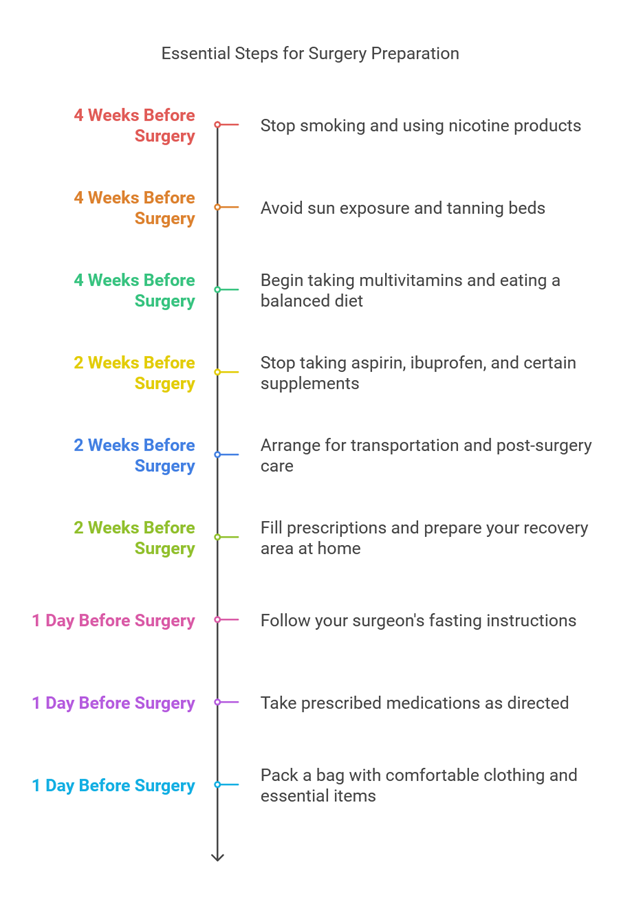
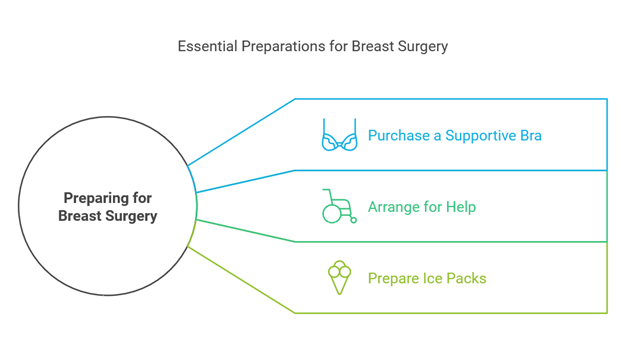
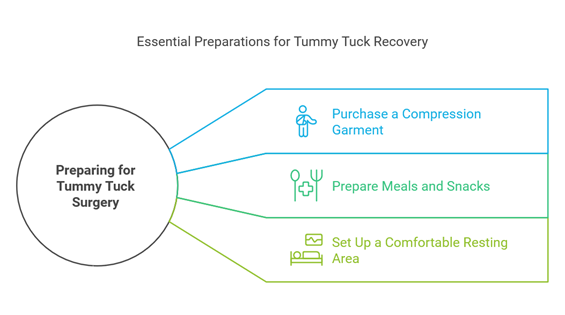
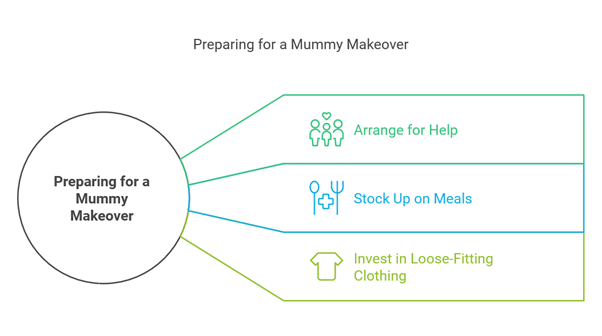
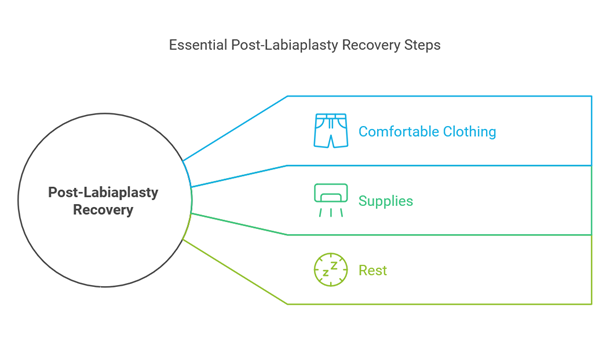
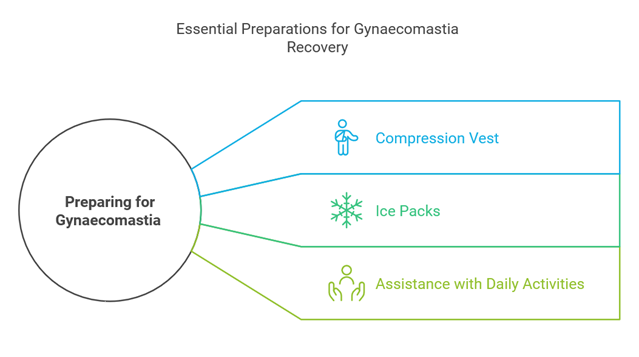
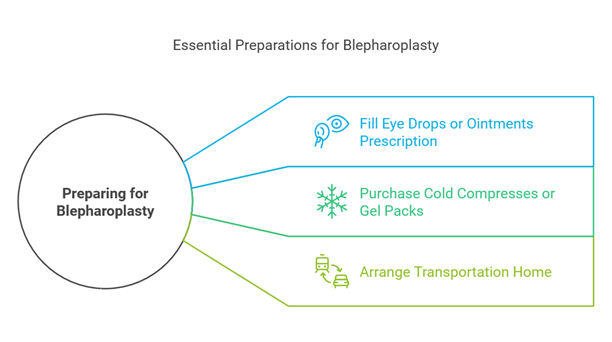
 Ms Anca Breahna, PhD, MSc, FEBOPRAS, FRCS (Plast) is a highly regarded Consultant Plastic Surgeon specialising in the field of Aesthetic and Reconstructive Plastic Surgery. Anca performs a range of
Ms Anca Breahna, PhD, MSc, FEBOPRAS, FRCS (Plast) is a highly regarded Consultant Plastic Surgeon specialising in the field of Aesthetic and Reconstructive Plastic Surgery. Anca performs a range of 